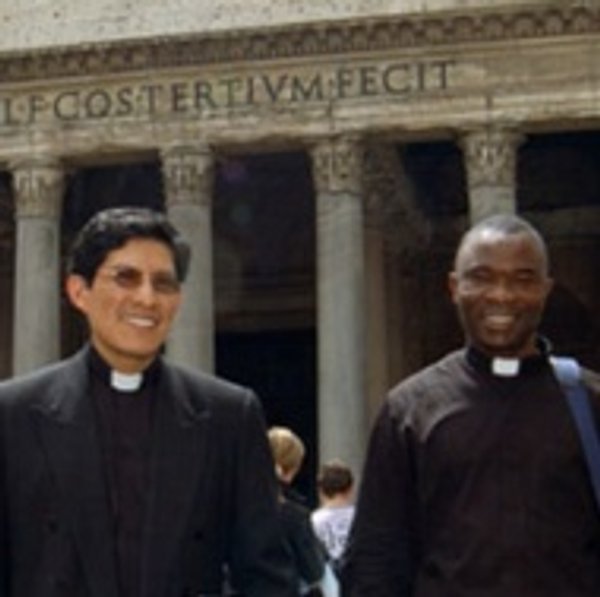The Priestly Society of the Holy Cross is an association of clergy intrinsically united to Opus Dei, which currently has about 4,000 members. It is made up of the clergy of the Prelature, who are automatically members, and other diocesan priests and (transitional) deacons. The Prelate of Opus Dei is its president.
The diocesan clergy who belong to the Priestly Society seek exclusively spiritual help and strive for holiness in the exercise of their ministry, according to the spirit of Opus Dei. Their membership in the Priestly Society of the Holy Cross does not involve incorporation into the presbyterate of the Prelature. Each one continues to be incardinated in his own diocese and depends solely on his own bishop, to whom alone he gives an account of his pastoral work.
The Church has recommended this type of priestly association in a number of different documents, including several texts of the Second Vatican Council, and the Code of Canon Law.
For a priest to be admitted into the Priestly Society of the Holy Cross he needs the inner conviction of having received a call from God to seek sanctity according to the spirit of Opus Dei. This involves a number of conditions: love for his diocese and unity with all the members of the diocesan clergy; obedience to and veneration for his own bishop; piety, the study of the sacred sciences, zeal for souls and a spirit of sacrifice; the effort to promote vocations; and the desire to fulfill his priestly ministry with the greatest possible perfection.
The spiritual help offered by the Priestly Society is directed towards promoting holiness in its members through the fulfilment of their priestly duties. It encourages priests to be united with their bishop and to promote priestly fraternity. The specific means of formation the diocesan priests of the Priestly Society of the Holy Cross receive are similar to those offered to the lay faithful of the Prelature, such as doctrinal or ascetical classes and monthly days of recollection. In addition, each one makes his own arrangements regarding the common means of formation laid down for priests by canon law, and those his own bishop may arrange or recommend.

The spiritual and formative activities of the members of the Priestly Society of the Holy Cross do not interfere with the ministry entrusted to them by their bishop.
